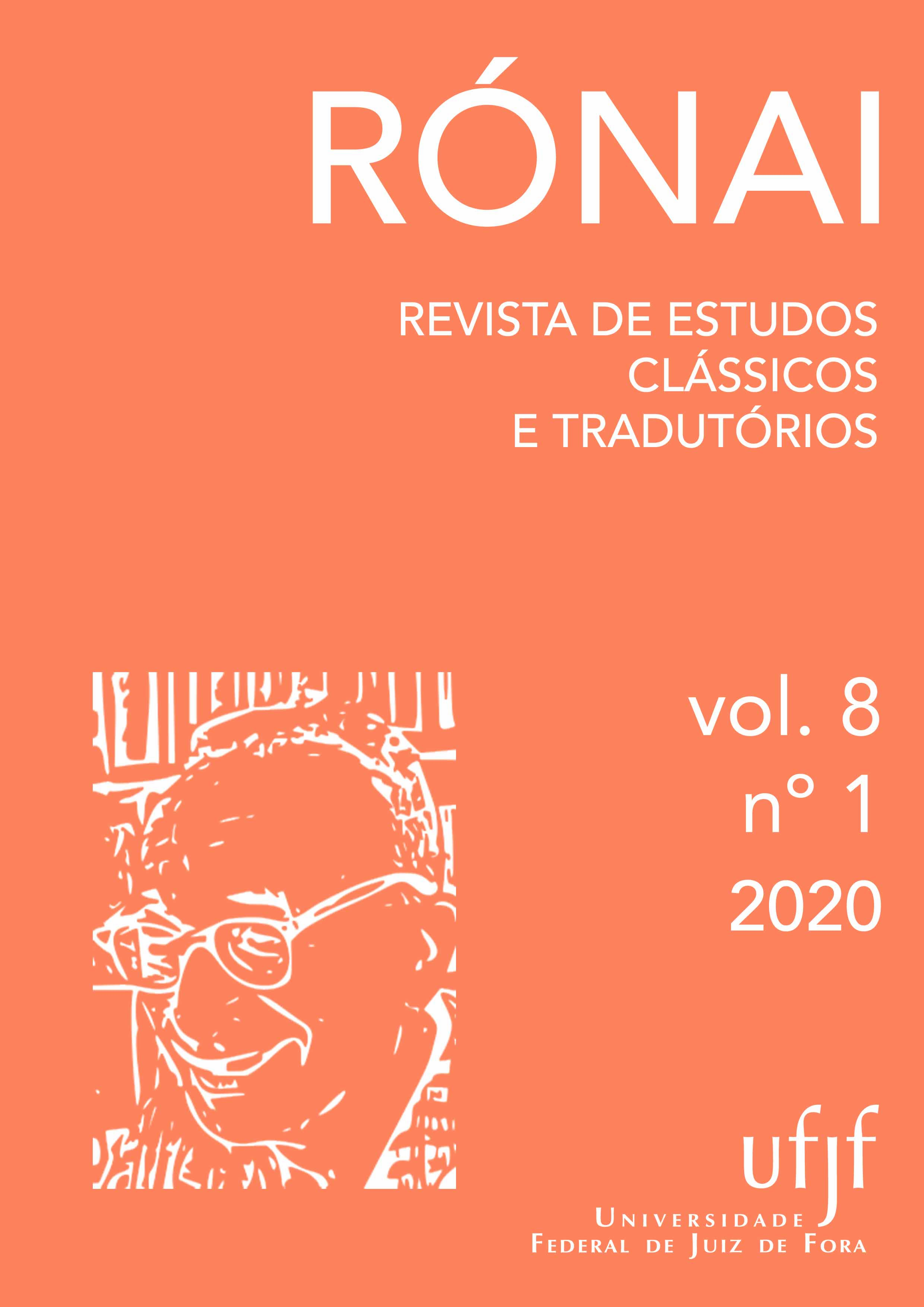Translation of Cicero, Fin. I, 65-70; II, 78-85 – The disputatio de amicitia in the De finibus
DOI:
https://doi.org/10.34019/2318-3446.2020.v8.27923Keywords:
Cicero, Epicurus, philosophy, Hellenistic philosophy, Latin literatureAbstract
The first dialogue of Cicero's De finibus is dedicated to the discussion of Epicurus' moral thought. The main characters are Torquatus and Cicero. In the first book, Torquatus’ speech exposes the theory of pleasure. Cicero refutes his interlocutor in book II. An important point in the discussion concerns the foundation of friendship. Here we present a Portuguese translation of excerpts, taken from the speeches of the two characters mentioned, that constitute the controversy about the Epicurean notion of friendship: Fin. I, 65-70; II, 78-85. The translation is accompanied by a brief introduction and explanatory notes.
Downloads
References
CÍCERO. De diuinatione. With an English translation by W. A. Falconer. London: Harvard University Press, 1992 (Loeb Classical Library).
_______. De finibus bonorum et malorum. Recognouit breuique adnotatione critica instruxit L. D. Reynolds. Oxford: Oxford University Press, 1998.
_______. De officiis. With an English translation by Walter Miller. London: Harvard University Press, 1990 (Loeb Classical Library).
_______. Epistulae ad Atticum. Edited by D. R. Shackleton Bailey. Stuttgart: Teubner, 1987. 2v.
_______ Laelius de amicitia. Texte établi e traduit par Robert Combès. Paris: Société d’éditions “Les Belles-Lettres”, 1971.
_______. Opere politiche e fiolosofiche di M. Tullio Cicerone (I termini estremi del bene e del male, Discussioni tusculane, Le stato, Le leggi, I doveri). A cura di Nino Marinone. Turim: Unione Tipografico-Editrice Torinese, 1976.
_______. Scripta quae manserunt omnia. fasc. 43. De finibus bonorum et malorum. T. Schiche. Leipzig: Teubner, 1915.
DIÓGENES LAÉRCIO. Lives of eminent philosophers. With an English translation by R. D. Hicks. London: Harvard University Press, 1991 (Loeb Classical Library).
DUVERNOY, J. F. O epicurismo e sua tradição antiga. Rio de Janeiro: Jorge Zahar, 1993.
GRIMAL, P. Dictionnaire de la Mythologie Grecque et Romaine. Paris: PUF, 1951.
MICHEL, A. Les rapports de la Rhétorique et de la Philosophie dans l’oeuvre de Cicéron. Paris: PUF, 1960.
SMITH, P. R. “‘A self-indulgence misuse of leisure and writing’? How not to write philosophy: did Cicero get it right?” In: Cicero the philosopher / Twelve papers. Edited and introduced by J. G. Powell. New York: Clarendon, 1995. p. 301-323.
Downloads
Published
How to Cite
Issue
Section
License
Copyright (c) 2020 Sidney Calheiros de Lima

This work is licensed under a Creative Commons Attribution 4.0 International License.
Copyright
The authors of the published contributions agree with the following items:
1. The authors keep the copyright and convey to the journal the right of first publication, the work being licensed under a Creative Commons Attribution License 4.0 International.
2. The authors are allowed and stimulated to publicize and distribute their work online after the publication in the journal, recognizing first publication in this journal.
3. The authors of the approved works authorize the journal to distribute their content, after publication, for reproduction in content indexes, virtual libraries and similars.
For more information about Creative Commons Attribution License 4.0 International, please, go to: https://creativecommons.org/licenses/by/4.0/deed.en
Editorial exemption
The authors of the published contributions are entirely and exclusively responsible for their contents. Its content does not represent an official position of Rónai - Revista de Estudos Clássicos e Tradutórios neither of Faculdade de Letras da Universidade Federal de Juiz de Fora or their partner institutions.



